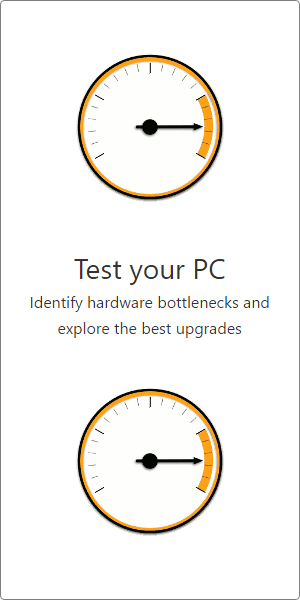Effective Speed
+1%
Poor: 115%
Great: 127%
SPEED RANK: 42nd / 714
Poor: 109%
Great: 133%
SPEED RANK: 41st / 714
| Effective 3D Speed
Effective 3D Gaming GPU Speed |
122 % | 124 % | +1% |
Average Score
+8%
Overclocked Score
+2%
Value & Sentiment
+54%
Nice To Haves
+5%
Conclusion
Average Bench 122%
Average Bench 124%
User Builds
48,534
840,268
Systems with these GPUs
Top Builds that include these GPUs

 GPU
GPU
